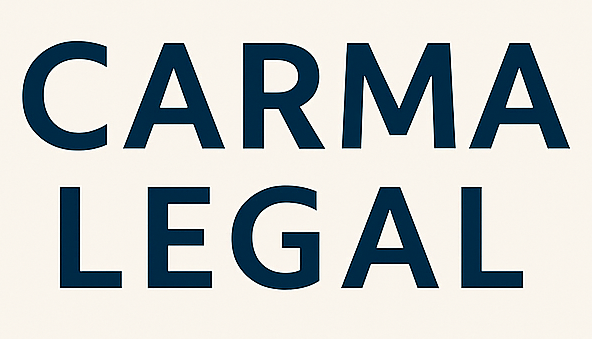Define living wills
When planning for the future, a living will lays out your preferences for medical treatments if you cannot communicate those wishes yourself. By working with a living will lawyer, you gain expert guidance to ensure your directives are clear, enforceable, and state-compliant. This partnership brings peace of mind as you proactively protect your family and avoid confusion during critical moments.
A living will is different from a health care power of attorney, which names someone to make decisions on your behalf. Understanding these distinct advance directives helps you assemble a comprehensive estate plan that honors your values and safeguards your loved ones.
What is a living will?
- A written legal document specifying which life-sustaining treatments you accept or refuse (for example, mechanical ventilation or tube feeding)
- Effective only if you are terminally ill or permanently unconscious [1]
- Outlines preferences for pain management and organ donation
Difference from a medical power of attorney
| Feature | Living will | Health care power of attorney |
|---|---|---|
| Purpose | Expresses treatment choices in end-of-life scenarios | Appoints an agent to make health decisions at any time |
| Activation | Requires terminal illness or permanent unconsciousness | Effective whenever you cannot communicate, regardless of condition |
| Document type | Directive | Proxy appointment |
Key components of a living will
- Specific instructions on life-sustaining interventions
- Statements on pain management preferences
- Organ donor authorizations, often via a donor registry enrollment form [2]
- Signature, witnessing, and notarization as required by state law
Explain legal requirements
State laws vary, so drafting a valid living will demands careful attention to statutory rules. A knowledgeable attorney helps you navigate each jurisdiction’s requirements, ensuring your document holds up when needed most.
State-specific rules
- Witnesses and notarization
- Most states require two witnesses unrelated to you or your health care providers
- Some states also demand notarization to confirm authenticity
- Physician confirmation
- In Ohio, two physicians must certify that you are terminally ill or permanently unconscious before your living will takes effect [3]
- Recording for safekeeping
- You can record your living will with the Franklin County Recorder’s Office to guarantee quick access by medical personnel and loved ones [2]
Activation criteria and effect
- The document only applies when you cannot make or communicate decisions
- Treatment must align with your written directives, guiding providers on whether to initiate or withhold life-sustaining interventions
- A proper lawyer-drafted living will minimizes the risk of disputes among family members or care teams
Highlight lawyer’s role
An experienced attorney ensures your living will reflects your intentions precisely, complies with statutory language, and integrates seamlessly into your broader estate plan.
Drafting state-compliant documents
- Uses legally accepted terminology to avoid ambiguity [4]
- Incorporates required clauses, such as revocation methods and signature blocks
- Ensures witness and notary provisions follow state guidelines
Avoiding unclear or invalid directives
- Revises vague phrases like “no extraordinary measures” into specific terms such as “no mechanical ventilation”
- Clarifies pain management preferences and palliative care options
- Reduces potential family conflicts by spelling out organ donation intentions
Periodic review and updates
- Attorneys advise you when to revisit your living will—for example, after major life events such as marriage, divorce, or diagnosis of a serious illness
- They help execute updated documents correctly, discarding outdated versions
List hiring benefits
Engaging a legal professional to draft your living will offers tangible advantages that go beyond legal compliance.
Peace of mind and protection
- Confidence that your wishes will be honored
- Reduced stress for family members who might otherwise guess your preferences
- Clarity for healthcare providers during critical moments
Safeguarding your family
- Limits disputes among loved ones by providing clear, written directives
- Protects healthcare proxies from difficult moral dilemmas
Avoiding probate complications
- Although living wills do not pass through probate, integrating them with a broader estate plan can reduce overall administration time and costs
- Working with a probate avoidance estate planning lawyer ensures your standalone directives fit within strategies to minimize court involvement
Outline drafting steps
Creating a living will with professional support typically follows a structured process:
- Schedule an initial consultation
- Discuss your health values, fears, and quality-of-life goals
- Review existing estate planning documents
- Provide medical and personal preferences
- Specify treatments you accept or refuse
- Share organ donation decisions and pain management choices
- Draft and review the document
- Attorney prepares a state-compliant form
- You review for accuracy and clarity
- Execute with formalities
- Sign in presence of required witnesses
- Notarize if needed
- File or record for safekeeping
Integrate related directives
A comprehensive plan includes multiple advance directives working together to cover all scenarios.
Health care power of attorney
- Designates an agent to make medical decisions when you cannot
- Becomes effective at incapacity, even if you are not terminally ill [1]
- Consider consulting a durable power of attorney lawyer or medical power of attorney attorney
Organ donor registration
- Ohio’s Donor Registry Enrollment Form can be included in your packet [2]
- One donor can save up to seven lives and improve many more through tissue donation
Physician orders for life-sustaining treatment (POLST)
- Complements your living will with specific medical orders for emergency responders
- Does not replace traditional advance directives but ensures first responders follow your treatment preferences
Choose the right attorney
Selecting a lawyer with the proper expertise ensures a seamless drafting experience and durable documents.
Key qualifications
- Specialization in estate planning and advance directives
- Familiarity with your state’s living will statutes and health care laws
- Track record of clear, enforceable document preparation
Questions to ask potential counsel
- How many living wills have you drafted?
- Do you handle periodic reviews and updates?
- Can you integrate this directive with my broader estate plan?
- What are your fees and does that include notarization or recording?
Working with an estate planning attorney
- Your living will becomes part of a complete set of estate planning documents
- Coordinate with trusts, wills, and powers of attorney by engaging a comprehensive estate planning lawyer
- Ensure your healthcare proxy, guardianship, and asset distribution strategies all align
Update living wills
Circumstances change, so your living will should not remain static. Regular reviews keep your directives relevant and valid.
When to review
- After major life events such as marriage, divorce, or birth of a child
- Upon diagnosis of a serious illness or significant change in health status
- When you relocate to a state with different advance directive rules
Updating procedures
- Draft a new living will with your attorney
- Properly sign, witness, and notarize the revised document
- Revoke the old version in writing and destroy outdated copies
Communicating changes
- Provide updated copies to your healthcare agent, family members, and primary care physician
- File or record the current directive for easy retrieval
Get started today
Proactive estate planning gives you control over your future and relieves burdens on your loved ones. Speaking with an experienced living will lawyer ensures your health care preferences are documented accurately and legally. Reach out to a qualified attorney to begin crafting directives that deliver peace of mind and protect what matters most.








